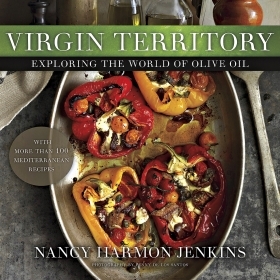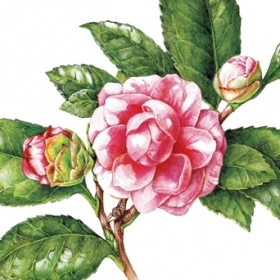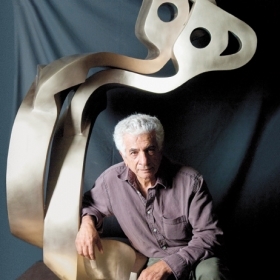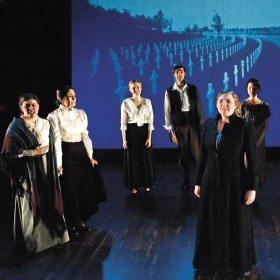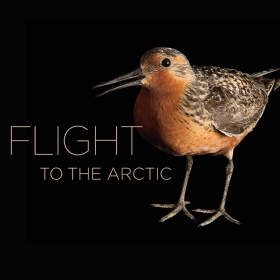Arts+Culture
Summer 2015
The perfect way to start luxuriating in Nancy Harmon Jenkins’ new book, Virgin Territory: Exploring the World of Olive Oil , is at your kitchen table over a glass of wine.More
Summer 2015
The room is hushed, the atmosphere focused and intense, as students in a botanical illustration class at the Margaret Ferguson Greenhouses zero in on their project for the morning—accurately rendering a narcissus bulb.More
Spring 2015
The first time Margaret Angelini ’85, carillon instructor and director of the Guild of Carillonneurs, heard the bells on campus as a first-year, she ran across campus to find out how she could play them, too.More
Spring 2015
In his 38 years of teaching, Tim Peltason, professor of English and Class of 1949 Professor in Ethics, has helped generations of Wellesley students become astute readers of British and American literature.More
Spring 2015
This skull is just one of myriad props that reside in the basement of Shakespeare House, the society’s Tudor-style headquarters and theater. The group is the College’s oldest continually operating student organization, founded in 1877 by Henry Fowle Durant himself. Hamlet opened this spring on Shakespeare’s birthday, April 23.More
Spring 2015
Iranian sculptor Parviz Tanavoli’s art, which is on display at the Davis Museum until June 7, draws on 3,000-year-old Persian culture.More
Spring 2015
Their words both haunt and teach us: “Before the war, I had two brothers and no money. Now I have more money than I’ve ever had—and no brothers.” “Every home on the street has…More
Spring 2015
In December 2014, Cambridge University Press released an annotated scholarly edition of Virginia Woolf’s Mrs. Dalloway edited by Anne Fernald ’88, associate professor of English and director of writing and composition at Fordham University. Fernald spent 11 years completing the textual edition.More
Spring 2015
I want to congratulate those who in very recent years have transformed Wellesley magazine into a “must-read” for me along with a very few other publications. The timeliness of the main articles, the content and layout of the minor, won’t let me skip a page.More




